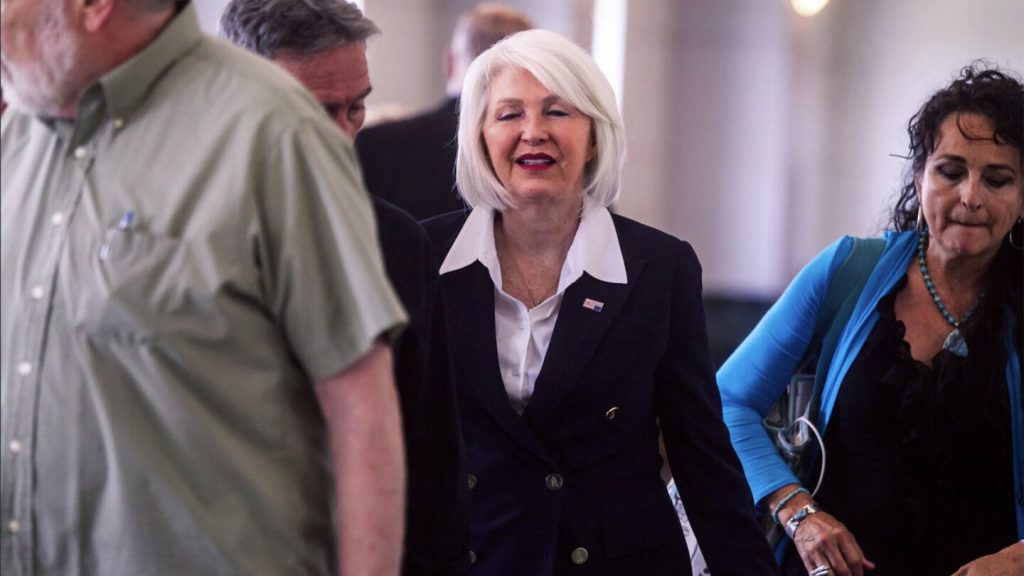Former Colorado clerk Tina Peters, known for her involvement in spreading unfounded conspiracy theories surrounding the 2020 election, was found guilty by a jury on multiple charges related to a security breach. Peters was accused of using someone else’s security badge to allow an expert affiliated with My Pillow CEO Mike Lindell access to the Mesa County election system. Prosecutors claimed Peters sought fame and became fixated on voting problems after aligning herself with individuals who questioned the accuracy of the election results. The breach Peters orchestrated raised concerns about potential insider threats in the election system.
Peters was convicted on charges including attempting to influence public servants, conspiracy to commit criminal impersonation, official misconduct, violation of duty, and failure to comply with the secretary of state. However, she was found not guilty of identity theft and other related charges, where it was alleged that Peters used the identity of the security badge’s owner without permission. The verdict was delivered in a quiet courtroom, with the judge warning against outbursts. Peters is set to be sentenced on October 3, with the trial shedding light on the dangerous consequences of individuals tampering with election systems.
In a post following the verdict, Peters accused Dominion Voting Systems and lawyers for state election officials of stealing votes, emphasizing that she will continue to fight until the truth is revealed. Colorado Secretary of State Jena Griswold commended the investigation into Peters, stating that she will face consequences for compromising election equipment to prove the so-called “Big Lie” promoted by Donald Trump. Colorado Attorney General Phil Weiser highlighted the message sent by the verdict, warning others against illegally tampering with voting processes and asserting the safety and fairness of elections in the state.
Prosecutors argued during the trial that Peters deceived government employees to work with individuals affiliated with Lindell, allowing unauthorized access to the election system’s hard drive before and after a software update. The prosecution claimed that Peters sought to become a hero and gain attention by participating in Lindell’s symposium on the 2020 presidential election. Defense lawyers maintained Peters’ innocence, arguing that she was preserving election records after being denied access to a county technology expert during the software update. Peters’ defense team contended that she did not commit a crime by allowing an observer affiliated with Lindell to make copies of the hard drive using another individual’s security badge.
The trial also revealed testimonies from individuals involved in the scheme, including a political activist who introduced Peters to Lindell’s associates. Testimony suggested that the owner of the security badge was aware that his identity would be used for the unauthorized access, although conflicting accounts arose during the proceedings. Despite the defense’s argument that the individual was aware and complicit in the scheme, prosecutors disputed the credibility of the witnesses. The jury’s verdict was delivered shortly after closing trial arguments, with the prosecution asserting that Peters had abused her power as a county clerk to benefit herself and work with external parties. Peters’ conviction serves as a warning against any attempts to tamper with election processes, reaffirming the safety and integrity of Colorado’s elections.


